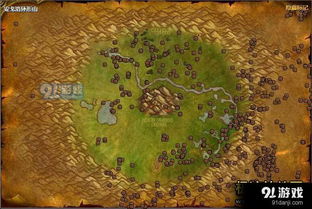Introduction to Game AI: Enhancing the Player Experience

Artificial Intelligence (AI) has become an integral part of the gaming industry, revolutionizing the way players interact with their games. Game AI refers to the use of AI algorithms to create intelligent and responsive non-player characters (NPCs) that can interact with players in various ways. This article delves into the world of game AI, exploring its significance, types, and impact on the gaming experience.
Significance of Game AI

Game AI plays a crucial role in enhancing the player experience by providing realistic and engaging gameplay. Here are some key reasons why game AI is significant:
Realism: AI-driven NPCs can mimic human behavior, making the game environment more realistic and immersive.
Challenge: AI opponents can adapt to the player's skills and strategies, providing a challenging and dynamic gameplay experience.
Storytelling: AI can be used to drive the narrative and create more compelling and interactive stories.
Personalization: AI can tailor the game experience to individual players, making it more enjoyable and engaging.
Types of Game AI

There are several types of game AI, each serving different purposes within the gaming environment:
Rule-Based AI: This type of AI follows a set of predefined rules to make decisions. It is commonly used for simple tasks, such as enemy movement and behavior.
Behavior-Based AI: This approach involves creating AI that behaves based on a set of learned behaviors. It is more complex than rule-based AI and can be used for more sophisticated tasks, such as social interactions and decision-making.
Neural Network AI: Neural network AI uses machine learning algorithms to learn from data and improve its performance over time. This type of AI is often used for complex tasks, such as recognizing patterns and making predictions.
Monte Carlo Tree Search (MCTS): MCTS is a decision-making algorithm used in games like chess and Go. It explores possible moves and evaluates their outcomes to make the best decision.
Impact of Game AI on the Gaming Experience

The integration of game AI has had a significant impact on the gaming experience in several ways:
Increased Challenge: AI opponents can adapt to the player's skill level, providing a challenging experience for both beginners and veterans.
Improved Storytelling: AI-driven NPCs can contribute to more engaging and interactive narratives, making the game more enjoyable.
Personalized Gameplay: AI can tailor the game experience to individual players, ensuring that each person has a unique and enjoyable experience.
Enhanced Immersion: Realistic AI behavior can make the game environment more immersive, allowing players to become fully engrossed in the game world.
Challenges and Future of Game AI

While game AI has made significant advancements, there are still challenges to be addressed:
Complexity: Creating AI that can handle complex tasks and adapt to various situations is still a challenge for developers.
Resource Intensive: AI can be resource-intensive, requiring powerful hardware to run smoothly.
Ethical Concerns: As AI becomes more advanced, ethical concerns regarding its use in games and other applications arise.
Despite these challenges, the future of game AI looks promising. With ongoing advancements in machine learning and computing power, we can expect to see even more sophisticated and engaging AI in games in the coming years.
Conclusion

Game AI has become an essential component of the gaming industry, enhancing the player experience in numerous ways. As technology continues to evolve, we can expect game AI to become even more advanced, providing more realistic, challenging, and immersive gameplay experiences. The future of game AI is bright, and it will undoubtedly shape the gaming landscape for years to come.
gameai gaming artificialintelligence nongame computergames gamingindustry aiinvideo games gamingtechnology gamingculture
























![找回压岁钱的100种 [][][] 2](/uploads/allimg/20250927/12-25092F55K22A.jpg)


















